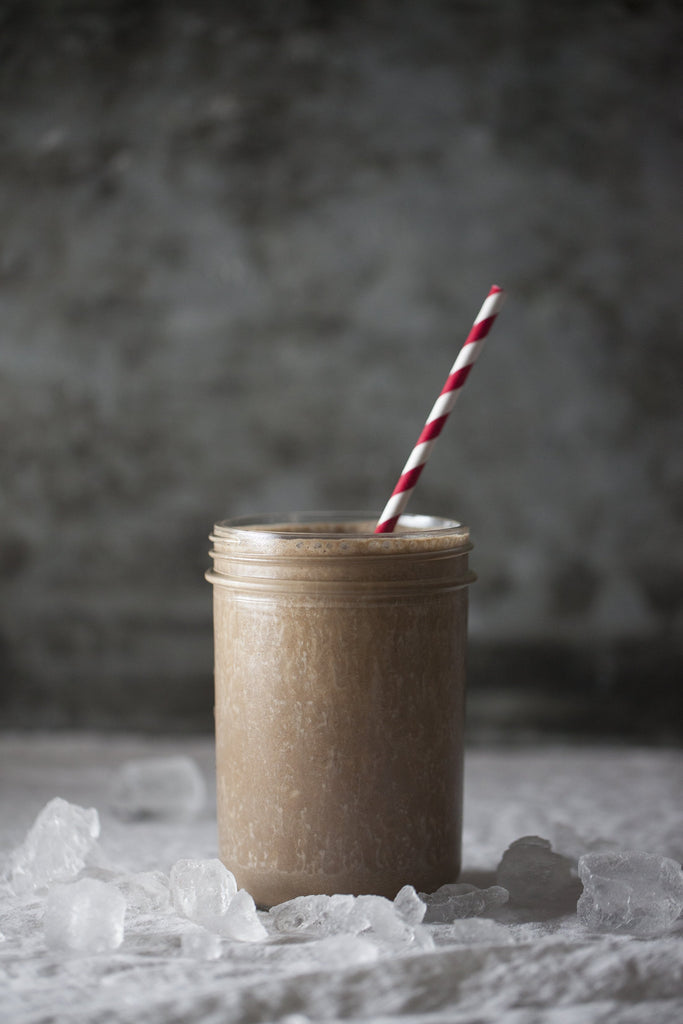Each week I receive a lot of emails asking for different ways to incorporate protein supplements into a healthy diet. A quality protein drink made from natural ingredients can replace a meal or snack. It helps curb sweet cravings and can help support the body’s metabolism.
Not all protein shakes are created equal. Become a label reader and look for powders that are natural and not artificially sweetened or full of fillers.
SPORTS NUTRITION
In order to train properly and recover quickly you need to look at your chosen activity, how long it lasts, time of day and the nutritional strategy to assist in energy supply and recovery. What you eat and drink before your workout allows the body to train in the best possible condition.
A protein drink immediately after exercise can increase muscle protein synthesis and optimize your recovery process. Before training it can curb appetite and keep blood sugars stable to get you though your workout in the best physical condition. Consuming your protein shake with water or coconut water is the most efficient choice and the quickest way of enjoying your protein shake. For recovery after your session blend your protein with mineral rich fruits that can help your body recover properly.
My favourite is banana + frozen blueberry + coconut water + 2 scoops of healthy chef protein. Alternatively enjoy a bircher muesli made from rolled oats or LSA, walnuts, a few scoops of protein + banana, blueberry and your choice of milk.
Make sure to hydrate properly after your workout to counteract dehydration. Exercise sessions over 1 hour may need additional electrolytes during and after the session to help with recovery. The American College of Sports Medicine recommends you replace 1.5 liters of fluid for each kilogram of body weight lost.
WEIGHT LOSS
Numerous studies have been done throughout the world on the importance of a healthy breakfast. The journal of the American Dietetic Association summarised the results of 47 studies examining breakfast consumption and its role in nutrition, body weight and academic performance. Those who ate breakfast tended to have superior nutritional profiles than their breakfast skipping peers and were less likely to be overweight. The aim is to eat a balanced, healthy, nutrient-rich breakfast including whole foods such as fresh fruits, vegetables and quality protein.
When I blend my smoothies, I often make them up as complete meal replacements combining my protein with Low GI fruits like berries so I get a good intake of antioxidants, protein and fiber to start my day. Studies show that adding strawberries to your meals slowed the insulin responses by delaying the absorption of sugars in the digestive tract. Insulin is an anabolic hormone that increases storage of fat, protein and glucose. It’s main effect in regard to fat is to block lipolysis (oxidation of fat). Guidelines for weight loss suggest between 80 - 120g of protein per day to aid satiety and for tissue repair.
WELLBEING
A quality protein and vegetable rich diet is also needed for hormone production such as HGH (human growth hormone) and testosterone. Both play a big role in the health of both men and women. HGH for instance can help boost muscle mass and bone mass as well as reducing fat mass. Including quality protein in your healthy diet can also assist with insulin function and glucose metabolism. Adequate dietary protein intake can also help preserve both muscle and bone mass that can start to decline as we age making us more vulnerable to risk of falls and fracture. It is also required to help nourish our immune system and to help the body repair and recover.
Remember your body is a finely tuned machine that needs the right nutritional balance accompanied with adequate exercise and rest. Getting enough sleep and learning how to control stress also plays a major factor in your overall health and wellbeing.

 Need help finding the right product for you?
Need help finding the right product for you?
